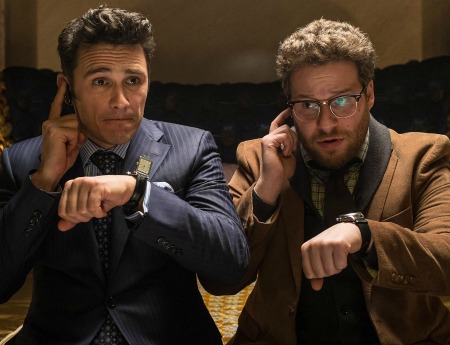FBI: North Korea Behind Sony Attacks

The smarter way to stay on top of broadcasting and cable industry. Sign up below
You are now subscribed
Your newsletter sign-up was successful
Confirming what had been speculated almost since the beginning, the FBI Friday confirmed that North Korea was responsible for the hack on Sony Pictures perpetrated by a group calling itself the Guardians of Peace, a cyberattack the White House has called a national security issue that will get a "proportional response."
"As a result of our investigation, and in close collaboration with other U.S. government departments and agencies, the FBI now has enough information to conclude that the North Korean government is responsible for these actions," the FBI announced.
"We are deeply concerned about the destructive nature of this attack on a private sector entity and the ordinary citizens who worked there. Further, North Korea's attack on SPE reaffirms that cyber threats pose one of the gravest national security dangers to the United States," the FBI said.
"The FBI's announcement that North Korea is responsible for the attack on Sony Pictures is confirmation of what we suspected to be the case: that cyber terrorists, bent on wreaking havoc, have violated a major company to steal personal information, company secrets and threaten the American public. It is a despicable, criminal act," said Motion Picture Association of America Chairman Sen. Chris Dodd.
MPAA has been criticized for not weighing in more forcefully on the attack and Sony's response, though he did address the attack at a press event in Washington earlier in the week.
"Disappointingly, that fact has been lost in a lot of the media coverage of this over the past few weeks," said Dodd in a statement. "This situation is larger than a movie's release or the contents of someone's private emails. This is about the fact that criminals were able to hack in and steal what has now been identified as many times the volume of all of the printed material in the Library of Congress and threaten the livelihoods of thousands of Americans who work in the film and television industry, as well as the millions who simply choose to go to the movies. The Internet is a powerful force for good and it is deplorable that it is being used as a weapon not just by common criminals, but also, sophisticated cyber terrorists. We cannot allow that front to be opened again on American corporations or the American people."
The White House has said it takes the hack very seriously, considers it a national security issue-it stopped short of calling it a threat, and has said it is considering a range of options, and has not ruled out a counter cyber-attack.
The smarter way to stay on top of broadcasting and cable industry. Sign up below
Directors Guild of America President Paris Barclay said he hoped the hack would be a rallying point for freedom, not chilling, of expression,. Barclay stood by Rogen and the film and said there should be a way to distribute it by some means to show the country won't be cowed.
“As the events of the past weeks have made painfully clear, we are now living in an age in which the Internet can enable a few remote cyber criminals to hold an entire industry hostage. This unprecedented situation demonstrates that even basic rights such as freedom of expression can quickly fall prey to those who would misuse and abuse the Internet to steal from, intimidate and terrorize our industry and our nation, and stands as an excruciating illustration of the heightened need for the federal government to increase its efforts to protect our society against cyber crimes, terrorism and all of its implications.
We hope that instead of the 'chilling effect' on controversial content, this incident becomes a rallying point for all of us who care about freedom of expression to come together and champion this inalienable right. We stand by our director members Seth Rogen and Evan Goldberg and hope that a way can be found to distribute the film by some means, to demonstrate that our industry is not cowed by extremists of any type.”
Contributing editor John Eggerton has been an editor and/or writer on media regulation, legislation and policy for over four decades, including covering the FCC, FTC, Congress, the major media trade associations, and the federal courts. In addition to Multichannel News and Broadcasting + Cable, his work has appeared in Radio World, TV Technology, TV Fax, This Week in Consumer Electronics, Variety and the Encyclopedia Britannica.

